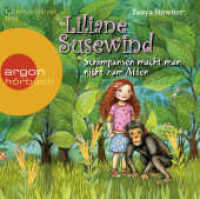Full Description
Next Level Screenwriting is an intermediate screenwriting book, for those that have already learned the basics of screenwriting, written a screenplay or two and want to bring their writing and stories to the next level.
Each chapter of the book examines a specific aspect of screenwriting, such as character, dialogue and theme, and then provides the reader with ideas, tips and inspiration to apply to their own writing. Rather than being another "how to" book, this volume features a variety of case studies and challenging exercises throughout - derived from a broad selection of successful feature films and TV shows from the 1940s to the present day - to help spark the imagination of the writer as they work through different styles and approaches of screenwriting.
An absolute must-read for any screenwriter wanting to improve their writing and storytelling skills.
Contents
Introduction
Chapter 1: Don't be afraid of Genre - keeping your promise to your viewer
Enjoying the Genre
Crossing Genres
A Final Note
Chapter 2: The Write Approach - Finding how to approach telling your story and the
point of attach
Motivated Style
The Internal Approach
Maintaining an Established Style
Style that fits the Genre
Chapter 3: Character depth - Thinking about more layered characters and their motivations
Character Motivation
the Character Mask
Humor as Character
the Other Character Change
Television Characters
Chapter 4: Dialogue that does more than further the plot
A Distinct Voice
Attitude Dialogue
Period Dialogue
Dialogue that Reveals Character
Poetic dialog
Contemporary Dialogue
When Talk is Action
Chapter 5: Poetic Description - Writing your settings can be as creative as writing your story
Choosing Your Words
Describing for the Mind's Eye
Writing for the Reader
Humorously Said
Chapter 6: Finding the Theme - Discovering what your writing is all about
Popular Movies have Themes
Shared Themes of Westerns & Horror
We have met the Enemy and they are us
The Stronger the Theme the Stronger the Story
Even Comedy has a Theme
The Naked Theme
Chapter 7; First Person Narrative Screenwriting - Writing voice over narration and found footage stories
Narration that isn't a Crutch
Hardboiled Wit Narration
Found Footage as First Person
Mockumentary)
Chapter 8: Dealing with Multiple Protagonist Syndrome or Navigating the ensemble screenplay
Ensemble vs Episodic
Linking Stories
Playing with Time
Ensemble Characters
Reoccurring Locations
The Ensemble Anchor
Ensemble in the Park
The Trouble with Ensemble
Chapter 9: Based on True Events & Research - Writing the core of the truth without being boring
Adapting History
Free yourself from the Truth
Find a Special Event in History
Find a Special Place in History
Research that Works for You
This All Applies to Television
Chapter 10: Set-up, Pay-off and the Twist - Writing in things that go around and came around
Twilight Zone Set-up/Pay-off
Twist Ending Set-up/Pay-off
Character Character Character
Twists in TV
Comedy Set-up/Pay-off
The Aristotle Connection
Chapter 11: Writing for a Budget - Writing screenplays under budget constraints
Micro-budget Feature
Independent Low Budget
Hollywood low budget
Limited budget TV
Chapter 12: Rewriting: The Pain and the Gain
Working in backstory
Development Rewrite
Production Rewrite
Post Production Rewrite
A Note on Taking Notes
Three Tricks to Note Taking
Chapter 13: Wrote the Script, Now What?
Copyright
Feedback
Contests
Producers and Agents
They Call it Hollywood
Make it Yourself
Low Budget Independents
How and How Much
Show Me the Money - in the Movies
Show Me the Money - in Television
Don't Undo Your Sale
Index








